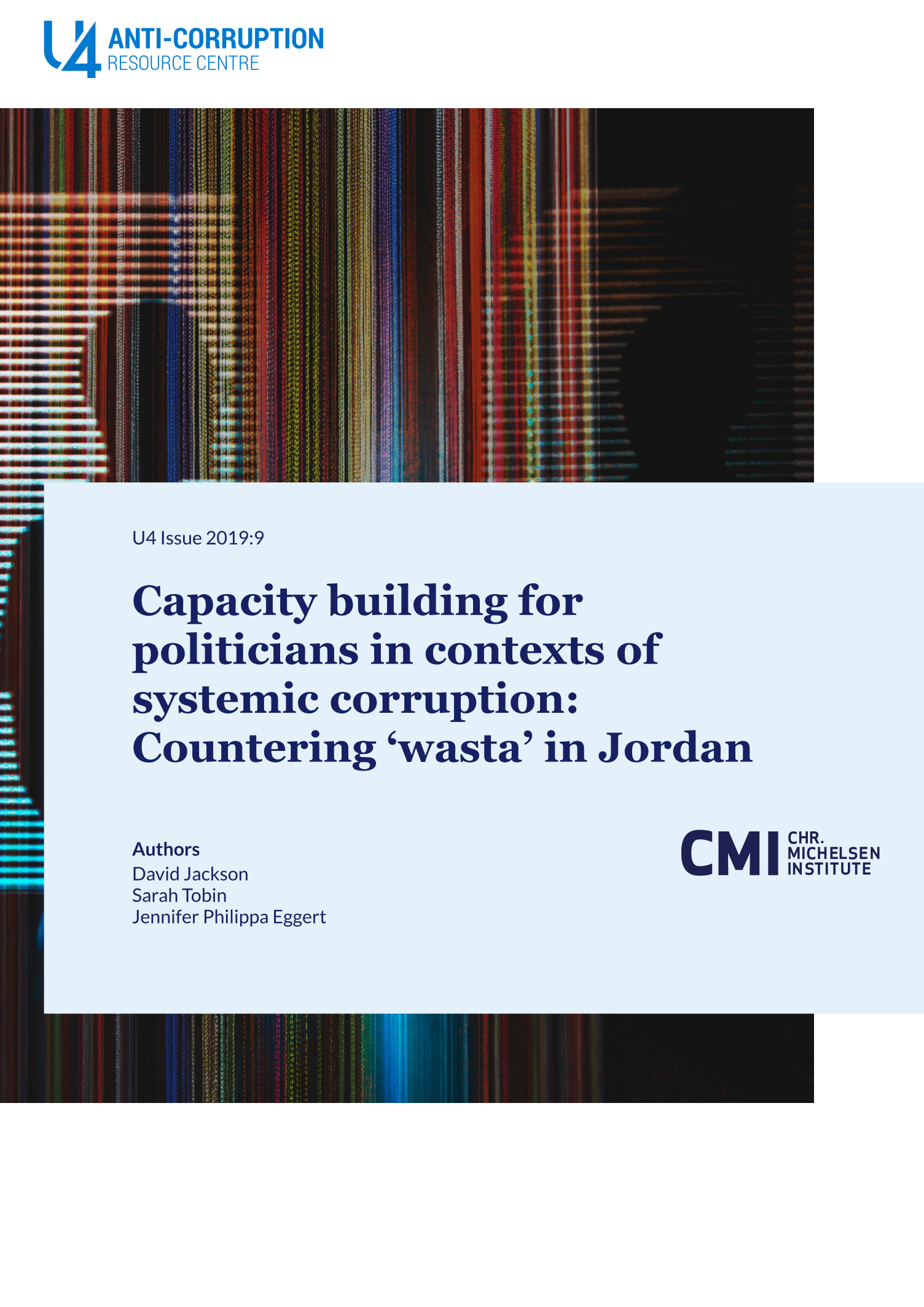Main points
- Systemic corruption exists when a corrupt act recurs consistently and is connected to other corrupt acts through an underlying system that enables and encourages the corruption. In designing all types of interventions, practitioners need to consider whether the corruption they seek to address is systemic – and how. Tackling systemic corruption requires alternative approaches; these need to go beyond the sorts of standard interventions that target more isolated forms of wrongdoing.
- We consider how the design of one common integrity-building intervention, capacity building for politicians, can respond effectively to systemic forms of corruption. We explore this question in the context of Jordan, where systemic corruption is often bound up in the concept known as ‘wasta.’
- Wasta, in basic terms, is about pulling strings. Wasta-practices normally involve an exchange not of money but of favours, and typically represent not a single occurrence but many exchanges over time. Wasta in Jordan has three qualities that make it systemic: it is functionally, normatively, and politically embedded in the society.
- Forms of systemic corruption, like wasta, are difficult to counter with capacity-building programmes that seek to strengthen conventional anti-corruption frameworks but neglect to address the system underlying the corruption. Anti-corruption in this context requires alternative strategies that challenge the incentives and norms of the system.
- To address systemic corruption, capacity-building programmes for parliamentarians could focus on supporting them to: (1) Improve the equity and efficiency of public service delivery institutions; (2) Use their leadership positions within social networks to build up normative constraints against the most pernicious forms of wasta; and (3) Build a coalition of parliamentarians to oppose the most pernicious forms of wasta.



